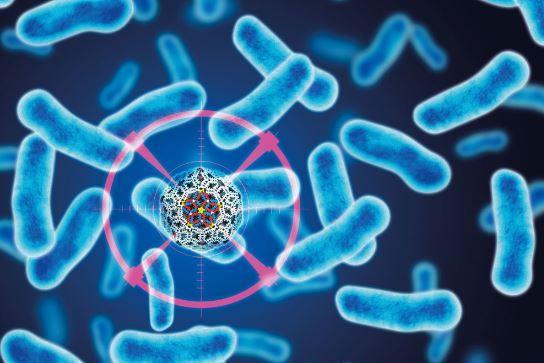Researchers at University College London on Wednesday announced they have developed a laboratory-built virus that kills unwanted bacteria on contact.
The breakthrough, detailed in a study published in the journal Nature Communications, comes from researchers at UCL, as well as Britain’s National Physical Laboratory. They created a synthetic hollow shell 20 nanometers wide, or less than 0.0000008 inch, which emulates naturally occurring viruses. The artificial viruses recognize and then destroy the membranes of bacteria.
The discovery demonstrates a new approach to treating infectious and antibiotic-resistant diseases, the researchers said.
“We used high-resolution and real-time imaging to see the impact of the synthetic viruses on bacterial model membranes and found that they are extremely destructive,” Hasan Alkassem, a doctoral student at UCL and co-author on the study, said in a press release .
“Seconds after landing on the surface, the synthetic viruses disassemble and form rapidly expanding holes in the membrane, causing it to leak. Experiments on intact bacteria then showed that this caused the bacteria to die.”
The synthetic viruses do not affect living human cells but can enter cells in the same way that natural viruses can. The researchers say the capability suggests their lab-built viruses can also be involved in gene editing and delivery, as well as in synthetic biology.
“We have a potential strategy to treat infectious diseases, and we also understand how it works,” said Bart Hoogenboom, a professor at the UCL London Center for Nanotechnology, UCL Physics and Astronomy, and UCL Institute of Structural and Molecular Biology.












